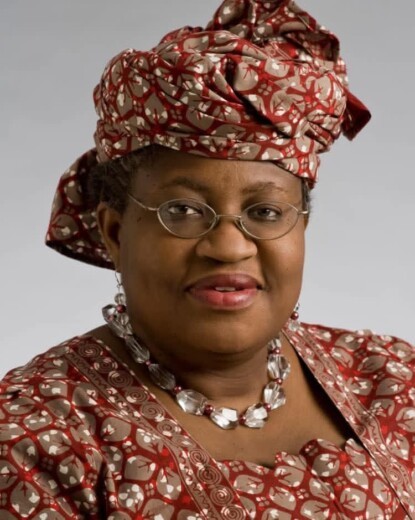Former Nigerian Finance Minister and current World Trade Organization Director-General, Dr. Ngozi Okonjo-Iweala, has issued a stinging rebuke of Nigeria’s leadership, saying the country’s crisis is self-inflicted, not the result of foreign criticism.
In a strongly worded statement titled “Trump Didn’t Hit Us — Our Leaders Did,” Okonjo-Iweala dismissed the outrage over alleged foreign insults, urging President Bola Tinubu’s administration to focus instead on insecurity and governance failures.
“This isn’t about foreign insults,” she said. “It’s about failure at home. When leaders spend more time negotiating with bandits and turning killers into talking-head celebrities than putting them behind bars, you know the plan is broken — or there is no plan at all.”
READ ALSO: Tinubu approves establishment of Federal University of Science, Technology in Epe
Again, Dangote Refinery reduces PMS pump price
YABATECH students return after completing international skills programme in China
The WTO chief condemned what she described as a culture of rewarding impunity and neglecting victims of violence.
“We worshiped rhetoric; we rewarded impunity,” she added. “Bandits are invited to table-talk and photo-ops while whole villages burn. That’s not diplomacy — it’s capitulation. Where is the outrage for the living, the widows, the children?”
Addressing President Tinubu directly, she called for decisive action rather than public relations efforts.
“Tinubu: stop the damage control speeches. Stop the tantrums aimed at foreigners. Secure the people. Disarm the militias. Prosecute the criminals,” Okonjo-Iweala said. “If your forces can’t, bring in professionals under strict oversight — but do something.”
She concluded by framing the issue as a test of true leadership.
“This is a test of leadership: humility, speed, and courage,” she declared. “Swallow pride, act, and protect citizens — or expect the world to name the wound you refuse to heal.”
Okonjo-Iweala’s comments have stirred debate across social and political circles, as many Nigerians grapple with rising insecurity and concerns over the government’s response.


